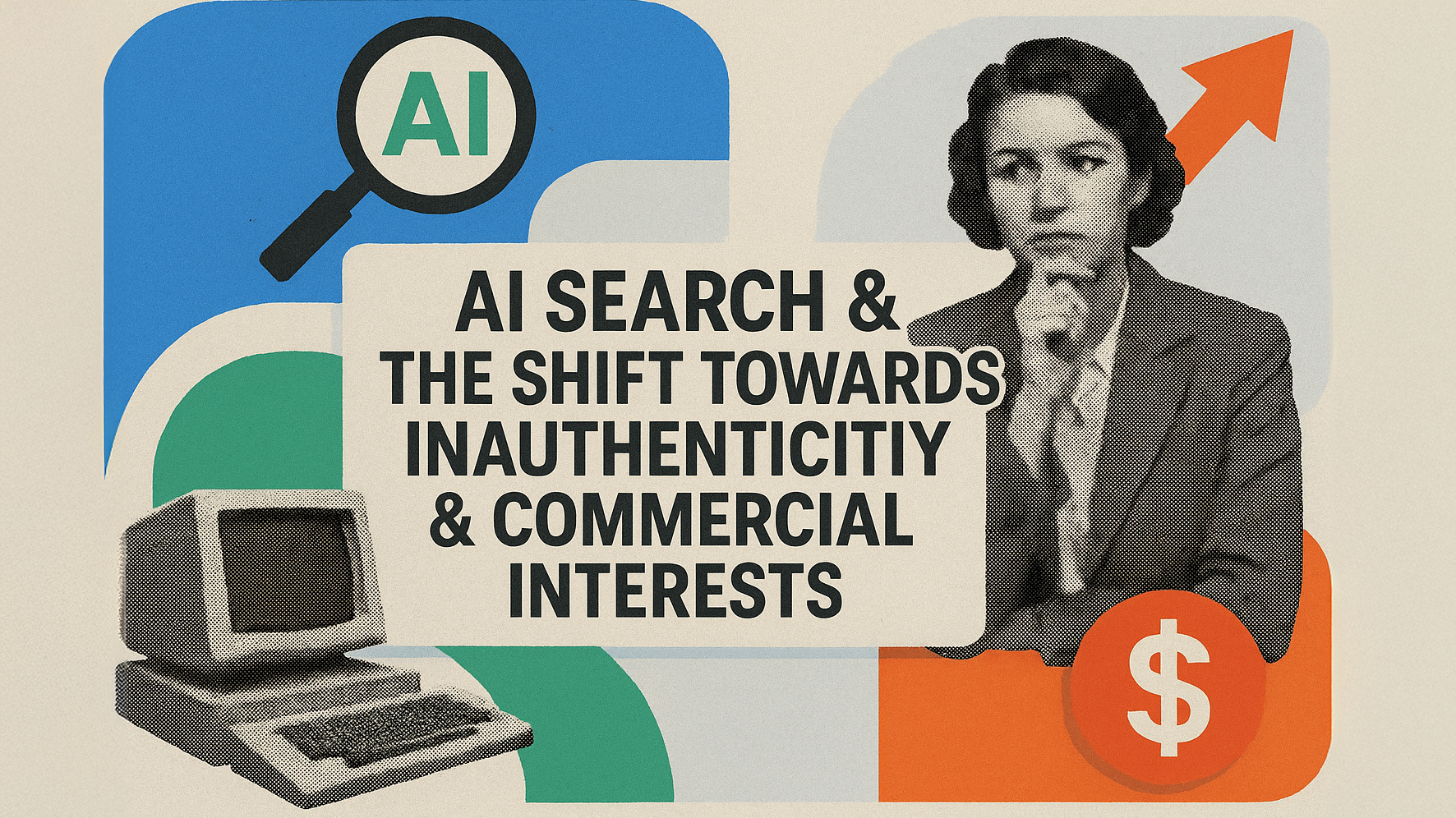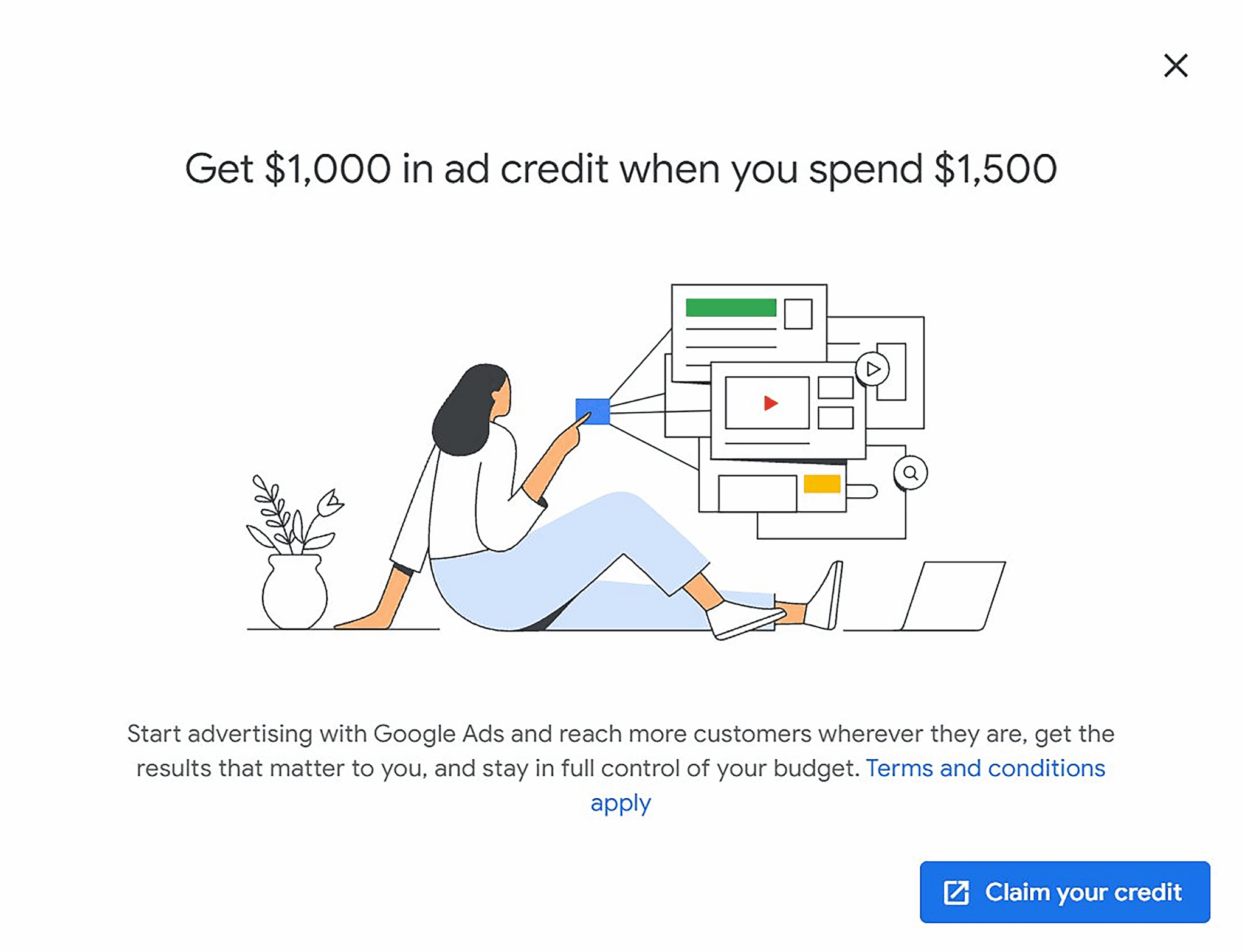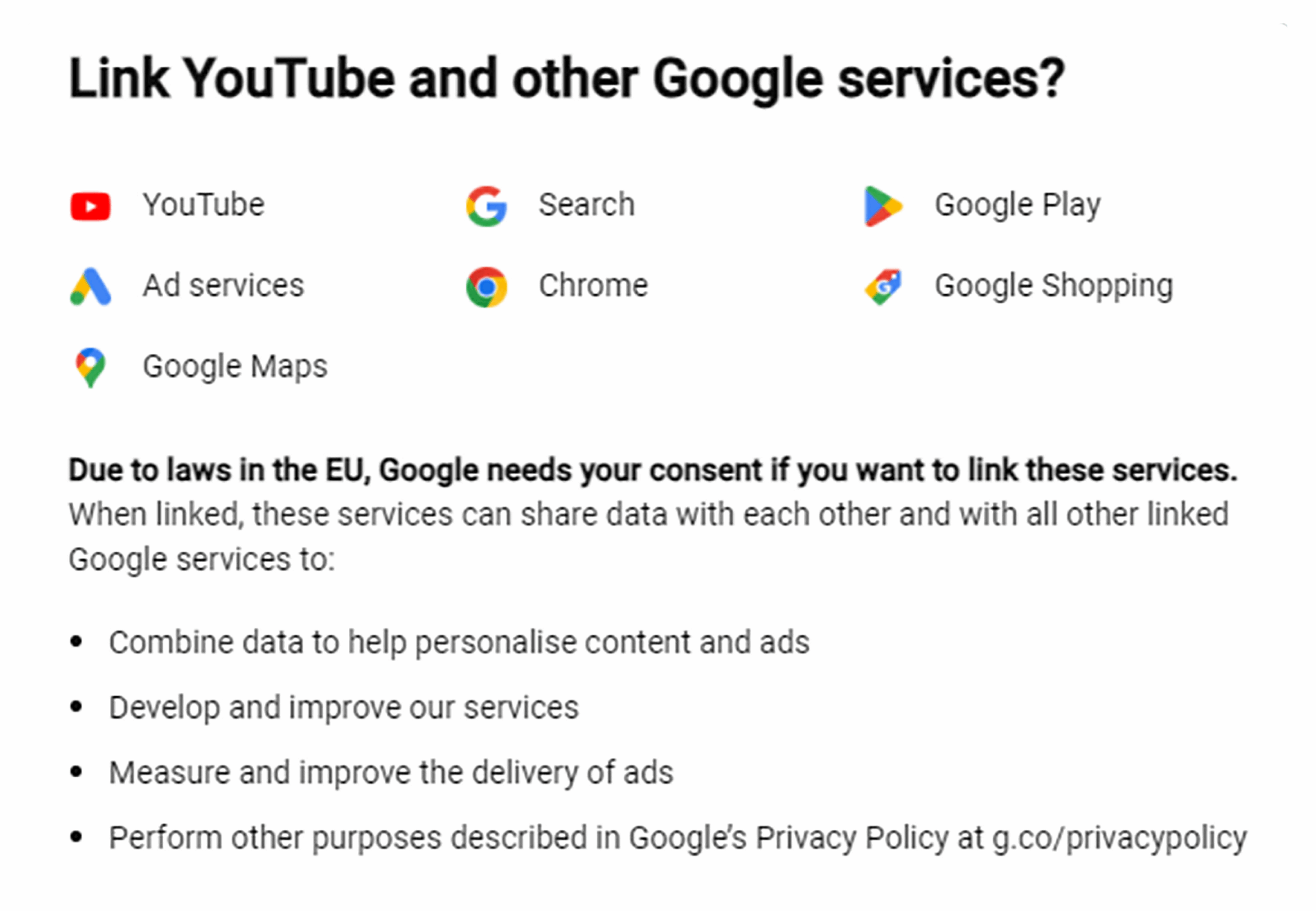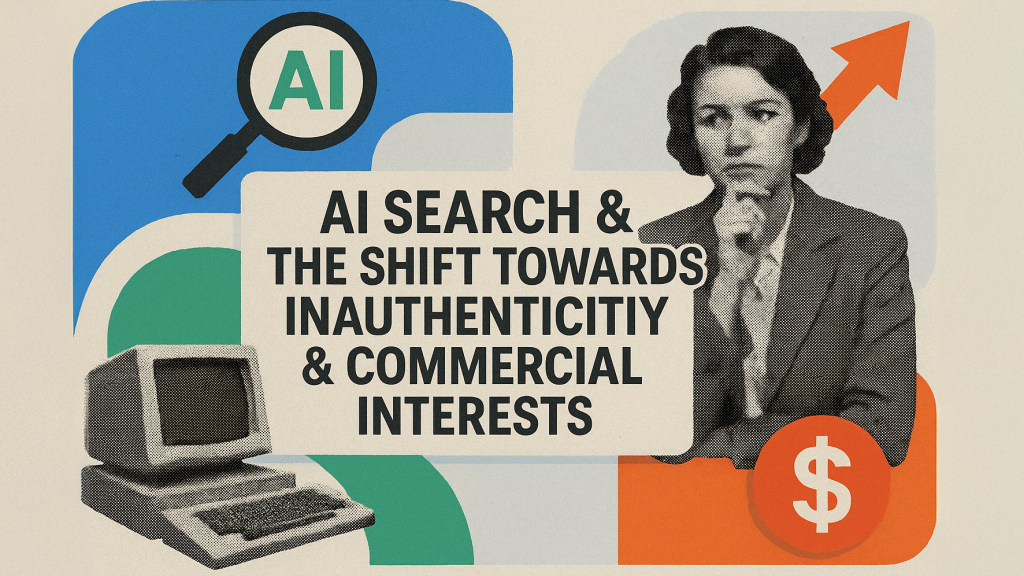AI search & the shift towards inauthenticity & commercial interests

Historically, Google Search has driven innovation by rewarding high-quality content with visibility and traffic. In the last article in this series, we talked about the risks of Google AI over-personalizing results and reinforcing filter bubbles.
In this article, we’ll look at the opposite risk. If Google’s new AI results skew away from diversity and towards standardized results that favor big brands and consensus views, it could limit creativity and innovation and accelerate the commodification of the web.
Some may find this concern naive because the internet is already very commodified, but historically, even small websites and businesses believed that they had a chance to rank and drive traffic. The web has long been seen as a digital marketplace of ideas. Yet because AI language models naturally look for consensus, being surfaced in AI search when you fall outside the mainstream could become much harder.
AI systems & consensus
You can look at all of the companies that lost all their traffic and/or rankings in the Helpful Content Updates to illustrate this point. Small affiliate websites that worked hard to add value to the internet with product reviews, articles, and comparisons were mostly wiped out in organic rankings.
Now, to drive traffic through Google, many of these companies have to buy ads and arbitrage their earnings, or shift focus to platforms like TikTok and Instagram. Most have chosen the latter, abandoning efforts to rank in Google altogether. And while not all sites that lost visibility in the Helpful Content Updates were entirely editorially written, high-value, human-oriented content, some definitely were.
The problem is this: if the types of companies go out of business or their sites disappear from the web, the corpus of information indexed by Google—and now used in AI search—will become less diverse. Forcing smaller publishers to pay to migrate entirely to social platforms could further reduce diversity in the web’s knowledge base. If independent creators are consistently excluded from rankings, they’ll have less incentive to share their unique perspectives anywhere but social media.
Social media may be an intentional counterbalance in Google’s plan, which is somewhat encouraging. Google recently announced that it will be ranking and showing YouTube Shorts in Discover, and already includes a ‘Short Video’ tab on many results. It has also shown increasing interest in ranking posts from Reddit and LinkedIn. And maybe this is not accidental. Maybe, in Google’s view, unique and new opinions should come from more independent creators, while mainstream or consensus views come from bigger companies with better brand recognition. Only time will tell.
The impact of advertising
Ads in AI Overviews have already begun to roll out, and when they are fully released next quarter, then we will really get a peek into Google’s plans for monetizing their AI. Until then, we can look at the recent history of how Google has changed ads and ecommerce with and for AI.
First off, the shift to Performance Max (PMAX) bidding in Google Ads was very frustrating for many people running paid campaigns—not only because of the black-box nature of the system, but also because of the lack of control and the lack of data. It seems like Google wants to lull advertisers into complacency by handling everything for them, ideally delivering better returns with less effort. It could be great for some, especially if they never want to learn anything about their audience and what works for them. But what if they do?
When Google runs PMAX bidding without sharing nuanced details of what’s working and what’s not, it means that Google is using your ads, budgets, and creative to learn about your customers— without telling you what they have learned. That means there is less for you to take away, cross-apply or use to inform decisions and campaigns in other advertising channels. In some industries, Google may learn enough to completely disintermediate you from your customers, like they have done with Google Travel, which now includes Flights, Hotels, Vacation Rentals, and food & activities (in Explore). AI is a double-edged sword.
This may also be part of the plan with Google Merchant Center. By aggregating data from all of the online retailers, Google can learn about how users shop for specific products, and use that to fine-tune PMAX campaigns—serving the right ads to the right people at the right time. This improves conversion and engagement for advertisers, using data collected from both paid and organic interactions in Merchant Center. Google is extending this approach with AI-powered tools designed to enhance shopping experiences, such as Circle to Search, Google Lens, Price Alerts, and Virtual Try-on.
Google already seems more aggressive in pushing digital marketers to its advertising options. I was served the ad below as part of a full-screen takeover on an organic SERP! This is something that I have never seen for an ad in Google before; the only time they ever use modals and/or full-screen takeovers in a search result that I can recall has been for warnings or opt-ins when their Terms and Conditions have changed.

In its recent Terms and Conditions updates, Google has been clear that it shares user data across Alphabet properties and uses that information to enhance advertising. It also combines this with modeled data about user journeys—on both micro and macro levels—to refine its targeting.
It’s reasonable to believe that Google will continue on this course until it stops working or until they are somehow stopped. The benefit of having such a huge market share is that searchers, publishers, and advertisers are all locked in, with limited other options and huge switching costs. This allows Google to continue to degrade organic traffic referrals in favor of monetized AI results and/or making searchers work harder to get to a good result through organic search. But even without that, you can see in the screenshots from this RustyBrick tweet that Google is even changing how sponsored results are being labeled and displayed, potentially to make them less distinct from regular organic results.
The Terms and Conditions update shown below is one that Google has shown to users in the EU, reminding them about how they are using all of their data across all of their platforms. The inclusion of Google Ad services really does show us how our ad data might be filtering out to impact and benefit all of Google’s platforms. As advertisers, we are paying for them to benefit from that data, even when we are given limited access to it ourselves.

So what can we do to protect the health of the internet?
AI and all the things it can do are such a new and fascinating topic that most of us have been sucked in and are embracing it with enthusiasm, and sometimes even reckless abandon. While I do openly admit that my personal beliefs lean towards being an “AI doomer,” I don’t think that doom and gloom is the only way things can go; I do, however, think that it is likely, given our lazy human natures and the lack of meaningful oversight or recourse.
Once a technology exists, its existence can’t be undone, and especially when it is on the internet, it can’t be forgotten. Humans have fallible understanding and recall, but the internet remembers forever. For better or worse, the AI toothpaste can’t be put back in the tube.
So how can we plan now for the future of AI innovation and create frameworks, guidelines, and even rules that will help preserve the health of the internet? How can we leave room for fair and balanced discovery of diverse content, without limiting AI innovation?
I believe the digital marketing industry should partner with the publishing industry, which is already beginning to unite around protecting its own copyright interests. Continuing to operate in silos will not create the protections the internet needs—on both the supply and demand sides of the ecosystem.
Until meaningful regulation of AI is created and enforced, the best bet for the internet is collective and collaborative standards that protect the ecosystem as a whole, rather than individual interests. Just as workers unionize to protect themselves from unfair exploitation by powerful companies, we also need collective bargaining and protection.
Some groups are starting broader digital and AI regulation in the EU, but it might benefit the digital marketing and SEO industries to develop and publish their own standards, which can be community-enforced rather than enforced by Google. Rather than labeling tactics as simply “black hat” or “white hat,” maybe we can adopt a more nuanced approach—especially when it comes to AI. At the very least, it’s a conversation worth having.







Recent Comments